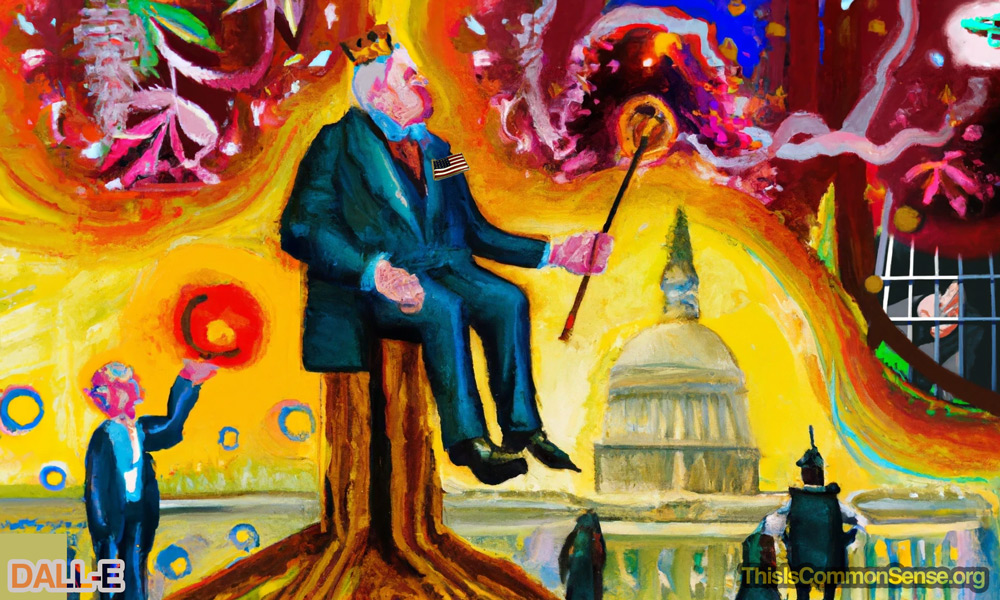President Biden’s decision to pardon everyone federally convicted for a simple marijuana possession is not the true beginning of the end of the federal war on drug-taking people.
In 2018, the federal government legalized certain products with cannabinoids derived from hemp. That’s something, even if the feds still ban buying and selling marijuana.
On the other hand, for years many states have been legalizing pot, inspiring the federal government to somewhat slacken enforcement of its own pot ban — sometimes.
These developments constitute the beginning of the end for the federal war on drug-taking people.
Call Biden’s gesture the middle of the beginning. That it won’t be rapidly followed by full federal legalization of unapproved drugs or even marijuana is shown by the objections of other politicians.
Senator Tom Cotton laments that Biden is “giving blanket pardons to pot heads — many of whom pled down from more serious charges.”*
The argument would be equally valid if it were illegal to blow soap bubbles and some people had pled down from a charge of smashing windows to a charge of blowing soap bubbles. Granted, plea deals are often horrible, wrongly abetting the guilty and hurting the innocent. So reform the plea-deal regime.
But don’t criminalize non-crimes.
The real impact? The White House admits that “while no-one is currently in prison for ‘simple possession,’ a pardon for those who have convictions could allow better access to housing or employment.”
Call it a half-start at the middle of the beginning of the end.
This is Common Sense. I’m Paul Jacob.
* Another lament is that Biden’s pardon is just cynical election-eve politics. Well … let’s have more such pandering to the people; it seems the only way to get good policy from bad politicians.
Illustration created with DALL‑E
—
See all recent commentary
(simplified and organized)

3 replies on “The Middle of the Beginning of the End”
Arguably pot is not a less hazardous drug. 6 % of users will have psychosis with use. Range from delusions, to paranoia, to hallucinations. A percent of those, the psychosis will not quickly remit. Duration may be weeks to months to years. No current test to determine who will have that persisting.
Nonetheless, there is no provision in the Constitution that makes that not a state issue. Chasing drugs and penalizing users is a $40 billion jobs program and justifies taking large amounts of taxes and welding lots of power.
The greatest share of those who will develop psychosis have a disorder of the complement component 4 gene; people known to suffer from bipolar or schizoaffective disorder, or closely related to someone suffering from one of these disorders or from schizophrenia should avoid consumption of cannabis altogether.
Persons under the age of 24 years should also avoid consumption, as cannabis almost surely affects brain development.
“Arguably pot is not a less hazardous drug.”
Than what? Any drug, and indeed any substance, can be “hazardous”. It is not the proper business of government, at ANY level, to protect us from life’s choices, hazardous though they may be.